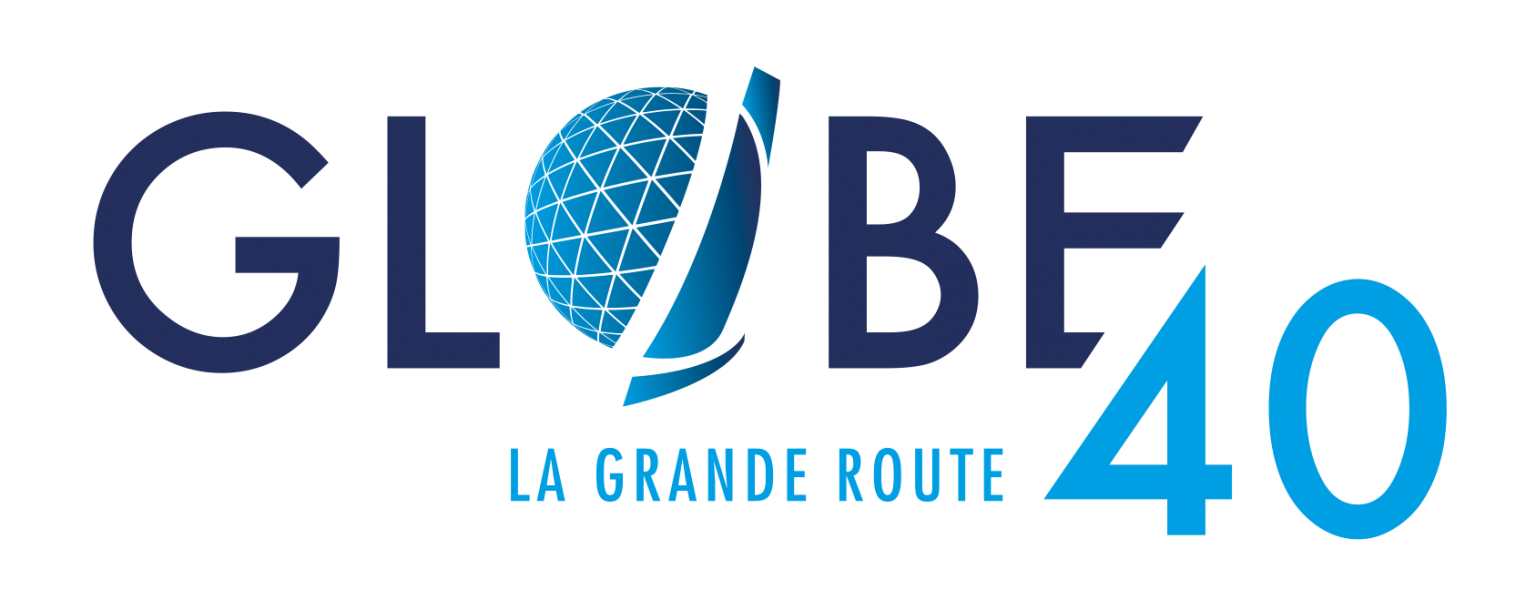
You were one of the first pre-registrants for the 1st edition in 2019, a project that was unfortunately halted by COVID. Did you follow the 1st edition, and what did you think of it?
Of course I followed the race and the competitors’ routes. At the start, the crews weren’t all at the same level, but quickly, after the second leg, a certain homogeneity settled in the fleet, making the race much more interesting. The atypical course and the compulsory passages created some surprises in terms of navigation. In the end, none of the Class40s entered encountered any major structural problems related to their design, which just goes to show that a Class40 is capable of sailing around the world.
Can you sum up your sailing career?
I’ve been sailing mainly in the Mediterranean, both with my family and racing, for as long as I can remember. In 1982, I sailed Ondine VI, an American maxi, as number 1. At that point, I chose to continue my studies in architecture, despite being asked to sail in the United States. After that, I had a number of opportunities to take part in ocean races, while continuing to sail as an amateur.
One of my highlights was sailing with Lionel Péan on his VOR70 SFS, particularly during a return Atlantic crossing. The VOR70 is a very demanding boat, both technically and physically, and it was an excellent experience sailing with a crew.
In 2018, I took part in the Route du Rhum in the Rhum Class, on an old 45-foot IOR. It wasn’t the ideal boat, but I still finished 8th.
In 2023, with Evrika, I did the second leg of the OGR, to discover the Indian Ocean. At 63, I know my limits perfectly well, and doing the GLOBE 40 double-handed still seems within my grasp.
What did you take away from your experience in the Route du Rhum 2018, both in terms of the construction of the project and the race itself: a culmination or a desire to set off again?
The hardest part is getting to the starting line: the preparation, the financing, and the stages in Saint-Malo are all obstacles to overcome. Once everything is ready, the race becomes almost a relief. Preparing the boat and the mindset are essential in an event like this.
This experience is a strength for Christophe and me as we prepare for the Globe40. Time, budget and the coherence of the project are the three essential elements for a serene start. All sailing, whatever it is, must remain a pleasure. If that’s not the case, you might as well not cast off. The Route du Rhum was a dream come true, and that obviously makes you want to set off again… but perhaps not solo.
Can you sum up your co-skipper’s sailing career?
Christophe comes from a large family of sailors and has benefited from this experience from an early age. We met in Newport in 1983: he was on France 3 and I was on Ondine VI. Since then, we’ve sailed together in Australia, China, Dubai and, of course, the Mediterranean.
Christophe, who has taken part in more than 15 Sydney-Hobarts, was also in Saint-Malo for my start in the Route du Rhum in 2018. He has incredible experience on different types of boat (editor’s note: including 2 America’s Cups, Mini-Transat, Tour de France à la Voile,…: 98,000 miles of racing and convoying… ) and, above all, he still has an undiminished desire to sail.
A year ago, you took part in the Cape Town – Auckland leg (7,500 miles) of the GOR. What was your experience like?
Sailing in the Indian Ocean on a Swan 65 is certainly slower than in a Class40, but it’s a lot more comfortable. It was a unique experience, especially being able to surf with the albatrosses. This leg will be important in our approach to the GLOBE 40 and in our preparation for the southern legs. Even if the type of sailing is different, the playing field remains the same.
What’s driving you today to rebuild a project for the 2nd edition?
All I have to do is reopen my old files from four years ago and everything will fall back into place. The team is still there. In fact, Christophe is to some extent the driving force behind this new adventure: like me, he’s keen to get going again, but this time under the right conditions.
We’re making progress with our contacts to complete the budget, and we have several options for the choice of boat, depending on the structure of the project. The advantage today is that we know you don’t need a state-of-the-art boat to take part in the GLOBE 40.
We’ve also established contacts with several sailors, which will allow us to rotate the crew and flesh out the message we want to get across. We’re starting to write a new story…
How would you judge the evolution of the event for the 2nd edition, and its positioning in relation to other races, particularly single-handed and on more extreme courses?
The second edition of the GLOBE 40 still offers some magical stages around the world. The experience of the first edition brings a certain psychological comfort, as well as invaluable technical feedback for the preparation of the boats and the legs.
I don’t have enough experience to talk in detail about other races like the Vendée Globe, but it seems to me that such races require considerable resources to set off in good conditions. I’m a bit sceptical about races that don’t fall within a well-defined framework or set of rules. You don’t set off on a round the world race in the same way as a Sunday corporate regatta.
In conclusion, what I feel after all this sailing is the pleasure of sharing as much as possible with those who don’t have the opportunity to experience this kind of adventure. There were some really great stories on the OGR, and I think there’s a lot to be said for that. The race is a means to an end, but certainly not the only goal.

